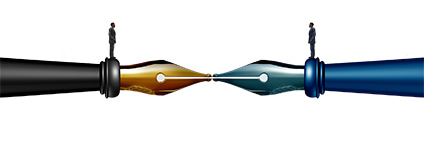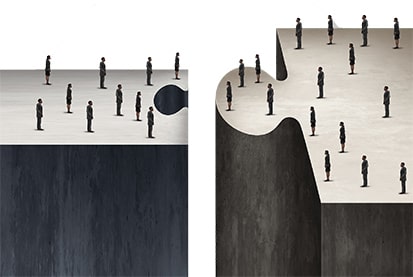Enforcement of Arbitral Awards in the UAE
 Enforcement is agreeing with a contract with an appropriate dispute resolution mechanism. The UAE introduced federal Law No.6 of 2018 on Arbitration in 2018. It clarifies the procedures to challenge the enforcement of an arbitral award before the onshore UAE courts. The arbitration law struck out the Articles 203 to 218 of the UAE Civil Procedures Law No. 11 of 1992, which handled a few provisions of arbitration in UAE. The arbitration law contains 61 articles, and it applies to any arbitration conducted in the UAE. In addition to Federal Law No. 6 of 2018 on Arbitration, arbitration is governed by Federal Law No. 11 of 1992 concerning the Civil Procedural Law. Chapter IV of Articles 235-238 explains the execution of foreign judgments, and chapter V of Articles 239-243 explains the execution procedures.
Enforcement is agreeing with a contract with an appropriate dispute resolution mechanism. The UAE introduced federal Law No.6 of 2018 on Arbitration in 2018. It clarifies the procedures to challenge the enforcement of an arbitral award before the onshore UAE courts. The arbitration law struck out the Articles 203 to 218 of the UAE Civil Procedures Law No. 11 of 1992, which handled a few provisions of arbitration in UAE. The arbitration law contains 61 articles, and it applies to any arbitration conducted in the UAE. In addition to Federal Law No. 6 of 2018 on Arbitration, arbitration is governed by Federal Law No. 11 of 1992 concerning the Civil Procedural Law. Chapter IV of Articles 235-238 explains the execution of foreign judgments, and chapter V of Articles 239-243 explains the execution procedures.
Enforcement of Arbitral awards
- Enforcement of Domestic Arbitral Award
The Arbitration Law repeals and replaces Articles 203 to 218 of the Civil Procedural Law. Article 52 of the Arbitration Law states that an arbitral award made in accordance with the Arbitration Law has the same binding force on the parties as a court ruling. The award can be enforced directly before the UAE federal or local Courts of Appeal. Under Article 52, an enforcement order should be given by the Court within 60 days of an enforcement request. Article 53 explains the eight grounds for an award debtor to challenge the execution proceedings within 30 days from receipt of notification of the award. On receipt of the application under Article 53, the Court may suspend enforcement proceedings for up to 60 days for allowing the Tribunal to eliminate grounds for setting aside the award. If there are any grounds remaining, it will be referred to the Court of Appeal, and it will review the submissions and evidence of the parties to decide on the subject to ratify or annul the arbitral award. The Court will not consider the merits of the arbitral Tribunal's findings for its decision. It should only reject an award if one of the procedural grounds in Article 53 of the Arbitration Law is applicable.
- Enforcement of Foreign Arbitral Awards
To enforce foreign arbitral awards in the UAE, the country had become a signatory to the UN Convention on the Recognition and Enforcement of Foreign Arbitral Awards 1958 and the New York Convention 2006. UAE is a party that deals with the enforcement of arbitral awards. According to the New York Convention, the enforcement of a foreign award can only be refused on the following grounds.
- The parties to the arbitration agreement were under some incapacity.
- The arbitration agreement is not valid under the law to which the parties subjected it or the law of the country where the arbitral award was made.
- The party against whom the arbitral award is invoked was not given proper notice of the appointment of an arbitrator or of the proceedings.
- The arbitral award deals with a difference not contemplated or falling within the terms of the submission to arbitration.
- The composition of the arbitral authority or the arbitral procedure was not under the parties' agreement or the law of the seat of arbitration.
- The arbitral award has not yet become binding on the parties or has been set aside or suspended by the courts at the seat of arbitration.
- The subject matter of the difference is not capable of settlement by arbitration under the law of the country where enforcement is sought.
- The enforcement would be contrary to the public policy of the state in which enforcement is sought.
The New York Convention can provide guidance on deciding the enforcement of foreign arbitral awards in the UAE. In one of its judgments, an Egyptian Court of Cassation held that a foreign arbitral award should be enforced as a domestic arbitral award by filing a petition to the Chief Justice of the Court of Appeal. The Egyptian Arbitration Law is similar to the UAE Arbitration Law. Article 23 of the Egyptian Civil Code is identical to Article 22 of the UAE Civil Code, and Article 301 of the Egyptian Civil Procedures Code is also similar to Article 238 of the UAE Civil Procedure Code. Article 238 of the UAE Civil Procedure code put down rules laid down in the prior articles will be without bias to the provisions of conventions between the UAE and different nations in this matter.
In view of the above, the UAE courts may consider the above ruling when enforcing foreign arbitral awards, which come under the UAE Arbitration Law. The UAE Arbitration Law adopts this according to Article III of the New York Convention. This will ensure that higher fees are not imposed on the enforcement of foreign arbitral awards. Articles 235, 236, and 238 of the UAE Civil Procedures Law will be replaced by Articles 85, 86, and 88 of the Cabinet Decisions.
- Enforcement Of Arbitral Awards in DIFC
 The enforcement of an arbitral award given by an arbitral tribunal in the DIFC starts with an application to the DIFC Courts for acknowledgment of the award. The grounds for refusal of an arbitral award are according to the DIFC Arbitration Law in light of the New York Convention's grounds. As with foreign judgments, the Judicial Authority will allow a foreign award creditor to enforce a DIFC Court order in onshore Dubai as if it is an order from the Dubai Courts. The DIFC Court might be used as a conduit jurisdiction for enforcing the domestic and foreign arbitral awards against the resources in onshore UAE. The Government of Dubai established the Joint Judicial Committee on 9 June 2016 with an aim to review and resolve conflicts of jurisdiction between the DIFC Courts and the Dubai Courts.
The enforcement of an arbitral award given by an arbitral tribunal in the DIFC starts with an application to the DIFC Courts for acknowledgment of the award. The grounds for refusal of an arbitral award are according to the DIFC Arbitration Law in light of the New York Convention's grounds. As with foreign judgments, the Judicial Authority will allow a foreign award creditor to enforce a DIFC Court order in onshore Dubai as if it is an order from the Dubai Courts. The DIFC Court might be used as a conduit jurisdiction for enforcing the domestic and foreign arbitral awards against the resources in onshore UAE. The Government of Dubai established the Joint Judicial Committee on 9 June 2016 with an aim to review and resolve conflicts of jurisdiction between the DIFC Courts and the Dubai Courts.
Without precedent for 2013, the DIFC Courts, in a milestone judgment, Banyan Tree v Meydan Group LLC (Banyan Tree case), held that the DIFC Courts have jurisdiction to enforce a UAE award regardless of the presence of resources and association of the parties with the jurisdiction of the DIFC.
Additionally, the Court held that the doctrine of forum non-conveniens only applies in the DIFC. The New York Convention is not applicable for the enforcement of UAE awards in the DIFC, considering domestic awards.
Conclusion
 It is clear that the UAE Arbitration Law has significantly improved the enforcement regime of the arbitration awards. The Dubai Court of Appeals rectifies the local arbitration award according to the new UAE Arbitration law provisions. The enactment of UAE Arbitration Law had issued several orders for granting enforcement of several foreign arbitral awards.
It is clear that the UAE Arbitration Law has significantly improved the enforcement regime of the arbitration awards. The Dubai Court of Appeals rectifies the local arbitration award according to the new UAE Arbitration law provisions. The enactment of UAE Arbitration Law had issued several orders for granting enforcement of several foreign arbitral awards.
From the past few years, it is clear that there has been a significant positive shift towards the enforcement of both foreign and domestic awards within the UAE, and new developments in arbitration will continue to strengthen UAE to accomplish the vision of development.
 English
English
 عربي
عربي Русский
Русский 官话
官话 português
português
 Türk
Türk 



.jpg&w=120&h=80&zc=1)




















